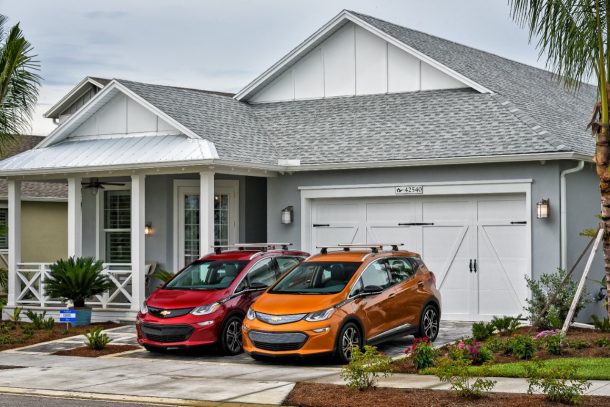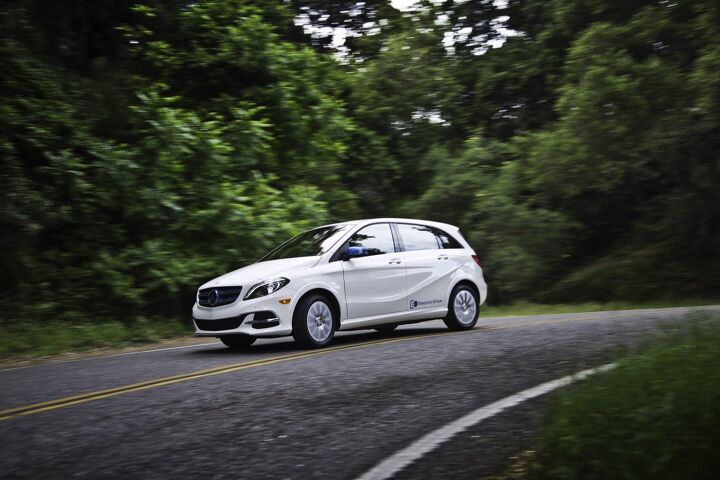#ElectricCarSales
Seemingly Every Automotive Headline Includes Electric This or That, but What's the State of Electric Vehicle Market Share in America?
You can forget the GM EV1 and the Toyota RAV4 EV. The car that truly attempted to bring electric cars into the mainstream was the 2011 Nissan Leaf.
It didn’t. U.S. Leaf sales, never reaching any great heights, plunged after its fourth full model year, falling by more than half between 2014 and 2016.
There’s a thoroughly updated second-gen Nissan Leaf on its way, destined to hit U.S. dealers early in 2018. But during the first-gen Leaf’s tenure, the Nissan was joined by a broad array of electric cars, from a handful of Teslas to the Chevrolet Bolt, Volkswagen e-Golf, Kia Soul EV, BMW i3, and Hyundai Ioniq, and all of these cars together have combined to quintuple U.S. electric vehicle market share over the last half-decade.
Only 0.1 percent of the new vehicles sold in America in 2012 were pure EVs. That figure has risen, very slowly, to 0.5 percent through the first eight months of 2017 while the number of available nameplates has more than doubled.
Perspective? Ford grew its F-Series’ share of the overall U.S. new vehicle market from 4.5 percent to 5.1 percent during the same period.
The Mercedes-Benz B-Class EV Is Dead, so the B-Class Is Dead in America
Before it ever got the chance to serve a conventional role in Mercedes-Benz USA’s lineup as America’s lone premium mini-MPV, the Mercedes-Benz B-Class is dead.
Mind you, the B-Class isn’t dead globally. But the B-Class Electric Drive, the only version of the B-Class ever to make it to U.S. shores, is ending production this fall.
The Mercedes-Benz B-Class ED will be missed, if at all, by very few Americans.
Incentive Money Gone, Electric Car Sales Have Dried Up In Georgia
Electric car sales in Georgia have halted after that state stopped offering incentives and started charging a $200 annual fee to recoup lost gas tax revenue, the Atlanta Journal-Constitution reported.
New electric vehicle registrations plummeted 89 percent from June to August after the state stopped offering a $5,000 tax break on top of the $7,500 federal incentive. Georgia’s incentive was one of the most generous in the country.
Georgia’s electric purge could portend a future in highly incentivized states, such as California and Colorado, where electric incentives and sales are still relatively strong.

















Recent Comments